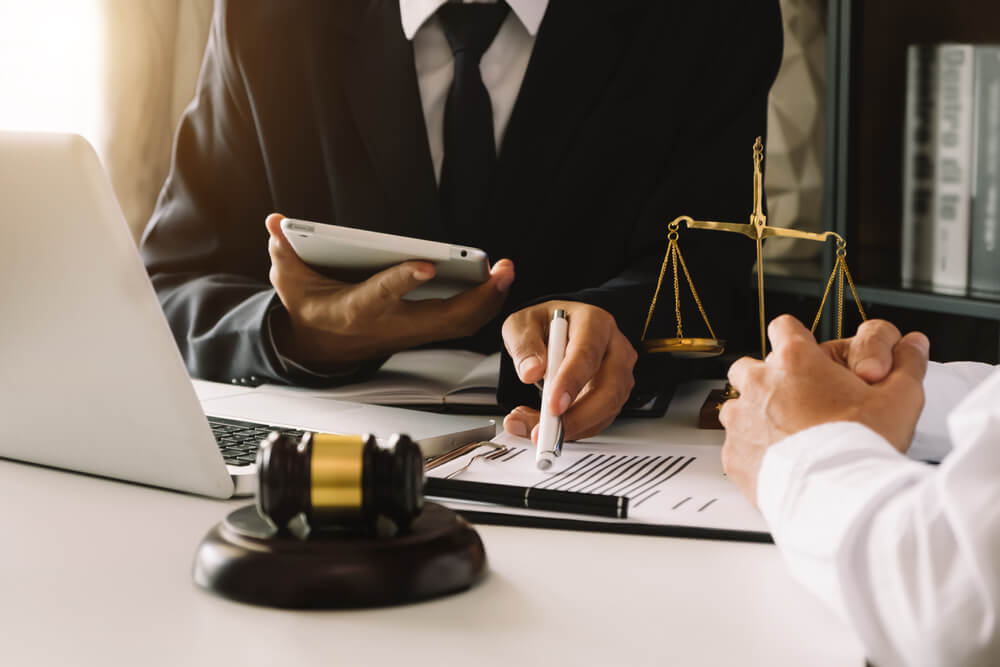
If you’re injured in Florida due to someone else’s negligence, you can seek compensation with the help of a Fort Lauderdale personal injury lawyer. These attorneys usually work on a “no win, no fee” basis, meaning their payment is conditional upon securing a settlement or winning in court. This payment structure, known as a contingency fee, typically ranges from 33% to 40% of the total amount you recover.
In this article, I’ll cover the typical percentage personal injury lawyers charge in Florida and provide a detailed explanation of how this fee is determined. It will also explore other crucial factors to consider when selecting a personal injury lawyer in Florida.
What Exactly is a Contingency Fee?
A contingency fee is a payment arrangement where a lawyer’s earnings depend entirely on the outcome of the case. In personal injury cases, this means the lawyer only receives payment if the client wins or settles the case and receives compensation. The percentage lawyers charge in Florida typically falls between 33% and 40% of the total settlement amount. However, this percentage can vary depending on factors such as the complexity of the case, the estimated chances of winning, and any potential expenses incurred during the legal process.
It’s essential to discuss the specifics of a contingency fee arrangement with your lawyer before agreeing to work with them. Ensure you understand the percentage they will charge and whether there are any additional fees or expenses you might be responsible for.

Elements Influencing Lawyer Fees in Florida Personal Injury Cases
Several factors can influence the percentage a lawyer charges for their services in Florida personal injury cases. Here are some of the most common:
Case Complexity
The intricacies of a personal injury case significantly impact the lawyer’s fee. Complex cases often involve intricate legal questions, multiple parties, or extensive evidence collection, requiring more time, specialized knowledge, and resources from the attorney. For example, cases needing expert testimony or involving severe injuries and substantial medical documentation are generally more challenging. Due to the increased effort and risk involved in these cases, lawyers may charge a higher contingency fee, closer to 40%. On the other hand, more straightforward cases with clear liability and less extensive documentation may result in a lower fee percentage. It’s essential to discuss the complexities of your case with your lawyer upfront to understand how it might affect the fee arrangement.
Likelihood of Success
The estimated probability of winning a personal injury case also plays a role in determining the lawyer’s fee. Cases with a higher likelihood of success may justify a lower fee percentage due to reduced risk for the lawyer. Conversely, cases that are more challenging to win or have a greater chance of going to trial may result in a higher fee percentage. This is because these cases demand more effort and resources from the lawyer, and there’s no guarantee of winning. It’s crucial to discuss the strengths and weaknesses of your case with your lawyer to reach an agreement on an appropriate fee based on the likelihood of success.
Expenses Incurred During the Legal Process
Various expenses may be incurred during the legal process, such as court filing fees, expert witness fees, and costs associated with obtaining medical records. These expenses can accumulate quickly and influence the final fee. In some instances, lawyers may offer to cover these expenses upfront and deduct them from the final settlement amount. It’s essential to discuss how potential expenses will be handled with your lawyer before agreeing to a contingency fee arrangement.
Legal Limits on Attorney Fees
Some states have laws that limit the percentage lawyers can charge for specific types of personal injury cases. Florida has statutory limits on attorney fees for medical malpractice cases. According to Florida Statute section 766.304, contingency fees for medical malpractice cases cannot exceed 40% of the first $250,000 recovered, 30% of the next $250,000, and 20% of any amount over $500,000. These limits protect clients from excessive legal fees in such cases. When discussing a contingency fee arrangement, it’s crucial to understand if your case falls under any statutory limitations. This ensures you are not charged more than the legally allowed maximum percentage.
Lawyer’s Negotiation Skills and Experience
A lawyer’s negotiation skills and experience can also impact their fee. A more experienced and skilled lawyer may be able to negotiate a higher settlement amount for their client, allowing them to charge a lower fee percentage. Conversely, less-experienced lawyers may not have strong negotiating skills or may settle for lower amounts, which could result in higher fee percentages. It’s important to consider the track record and experience of your lawyer when discussing a contingency fee arrangement. Additionally, discuss how the lawyer will handle negotiations and whether any fees or expenses are associated with the negotiation process. Some lawyers may charge an additional fee for their time and effort in negotiating a settlement on your behalf.
Typical Fee Percentages in Florida
The average percentage charged by lawyers for personal injury cases in Florida typically ranges from 25% to 35%, with an average of 33%. This aligns with the typical range across the United States, generally between 30% and 40%. However, this average can fluctuate based on the complexity of the case, the likelihood of winning, and other factors.
It’s important to remember that a lower percentage doesn’t always guarantee a better outcome. Sometimes, it’s worth paying a higher fee for a more experienced and skilled lawyer who can negotiate a larger settlement.
Typical contingency fee percentages vary based on the case outcome. Settlements before trial usually have a standard rate of 33%. The percentage may increase slightly if the case settles after a lawsuit is filed. If the case proceeds to trial, the fee is typically higher, around 40%, due to increased time, resources, and trial preparation. Medical malpractice cases have statutory limitations in Florida, with a tiered fee structure based on the amount recovered. Speak to a Fort Lauderdale medical malpractice attorney today!
This information provides a general overview of typical fee percentages, helping you understand what to expect based on your case’s specifics. Always confirm these details in a written fee agreement with your lawyer to avoid surprises.

Locating a Skilled and Ethical Personal Injury Attorney
Identifying a lawyer who is both fair and experienced can be tough, but taking the right steps can help you find the ideal advocate for your needs. Here’s how to find an attorney who fits the bill:
- Investigate potential candidates: Begin by compiling a list of personal injury lawyers in your locality. Look for online reviews and seek recommendations from people you trust.
- Assess their track record: Seek out a lawyer with a history of success in personal injury cases, particularly in securing favorable settlements.
- Evaluate communication style: A good lawyer should be a clear and effective communicator, ready to listen to your concerns and explain legal complexities in plain language.
- Talk about fees from the start: Before hiring a lawyer, have a candid conversation about their fees and any potential costs you might incur during the legal process.
Is a “No Win, No Fee” Agreement Suitable for You?
A contingency fee arrangement (where you only pay if you win) might be a good fit if you can’t afford upfront legal fees or if your case involves substantial expenses like expert witnesses or medical records.
However, carefully evaluate the percentage the lawyer will take and any other associated costs before agreeing to this arrangement. If you have reservations, consider alternatives like hourly rates or a fixed-fee agreement.
The best choice for you depends on your individual circumstances and the details of your case. Discuss all aspects of the fee structure openly with your lawyer before making a decision.

Potential Pitfalls When Discussing Contingency Fees
When working out a contingency fee agreement with your attorney, it’s crucial to steer clear of certain errors that could harm your case. Here are some things to watch out for:
- Ignoring legal limits: Be aware of any laws in your state that cap the percentage a lawyer can charge in personal injury cases.
- Forgetting about extra costs: Don’t focus only on the main contingency fee. Ask about any other fees or expenses that might pop up during your case.
- Not negotiating: Don’t be hesitant to discuss a lower percentage if you think it’s justified based on your situation. The fee isn’t fixed and can be negotiated.
- Being unclear about fee calculations: Make sure you understand exactly how the lawyer will calculate their fee, including any deductions or additions to the final amount.
By avoiding these pitfalls and having transparent conversations with your lawyer, you can ensure a fair agreement that benefits both of you.
Common Questions About Contingency Fees
-
Are legal expenses included in the lawyer’s percentage?
Generally, the percentage a lawyer receives covers necessary expenses like court fees, expert witness fees, and costs for obtaining medical records. However, it’s always best to confirm this with your lawyer before agreeing to their fee structure.
-
Can I negotiate a lower percentage for the lawyer’s fee?
Yes, you can negotiate a lower percentage if you believe it’s reasonable based on your case’s specifics. Open and honest discussions about this are crucial before signing any agreements.
-
Are there other fee arrangements besides contingency fees?
Yes, there are alternative fee arrangements depending on your case and financial situation, such as hourly rates or fixed-fee agreements. Discuss these options with your lawyer to find the best fit for your circumstances.
-
What’s the typical fee agreement for a Florida personal injury lawyer?
Most personal injury lawyers in Florida use contingency fee agreements, meaning they only get paid if you win your case. The fee typically ranges from 33% to 40% of the settlement or court award.
-
How much do personal injury lawyers usually charge in Florida?
Personal injury lawyers in Florida typically don’t charge upfront fees. Instead, they take a percentage of the settlement or court award, usually between 33% and 40%, as their fee.
-
What percentage of the settlement do Florida personal injury lawyers take?
In Florida, personal injury lawyers generally take between 33% and 40% of the settlement or court award as their fee. This is standard practice for handling personal injury claims on a contingency basis.
-
Are all personal injury lawyer fees the same in Florida?
No, while most personal injury lawyers in Florida charge a contingency fee of 33% to 40%, the exact percentage can vary depending on the case’s complexity and the specific agreement you make with your lawyer. Always discuss the fee structure upfront before hiring an attorney.
Conclusion
Securing the right attorney and a suitable payment structure is essential for a positive outcome in your personal injury claim. If you’re considering a “no win, no fee” agreement, it’s vital to communicate openly with your attorney about all fee details, including any possible costs that could come up during your case.
Before signing any legal documents, make sure to have frank conversations with your lawyer to address any worries or questions you might have. A skilled lawyer can help you obtain the fair outcome and financial recovery you’re entitled to after your injury. Therefore, don’t rush the process; investigate potential lawyers carefully and rely on your gut feeling when selecting the best one for your needs.
If you need specialized legal assistance with a personal injury claim, reach out to Rosen Injury Law. Call us at (954) 787-1500 to schedule a consultation and start your journey toward recovery.
Related Content: